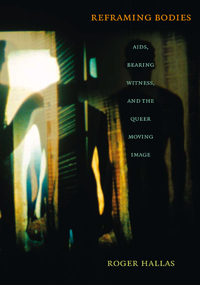Vintage Over Digital: Alumnus Dan Cohen’s Voyager CD Bag Merges Music and Fashion
Bucking the trend of streaming music platforms and contrary to what one might expect of a member of his generation, musician Dan Cohen ’25 prefers listening to his favorite artists on compact disc (CD) and record players. His research and…


 “Queer AIDS media are neither mere ideological critiques of the dominant representation of homosexuality and AIDS, nor corrective attempts to simply produce ‘positive images’ of people living with HIV/AIDS,” says Hallas. “Rather, they perform complex mediated acts of bearing witness to the individual and collective trauma of AIDS.” The author goes on to say that moving images ostensibly played a vital role in AIDS cultural activism during the 1980s and 1990s.
“Queer AIDS media are neither mere ideological critiques of the dominant representation of homosexuality and AIDS, nor corrective attempts to simply produce ‘positive images’ of people living with HIV/AIDS,” says Hallas. “Rather, they perform complex mediated acts of bearing witness to the individual and collective trauma of AIDS.” The author goes on to say that moving images ostensibly played a vital role in AIDS cultural activism during the 1980s and 1990s.